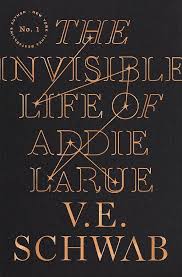Chapter II
byChapter II begins with Henry sitting alone on the stoop of his apartment building in Brooklyn, the weight of his emotions heavier than the physical exhaustion from a night spent indulging in alcohol and pills provided by his sister Muriel. The stormy evening mirrors the chaos within his mind, as he feels trapped in the isolation that his choices have led him to. He stares blankly at the rain pouring relentlessly down, unable to move, the stairs to his apartment—a place that once felt like home—now feeling like an insurmountable barrier. Lost in a swirl of self-pity and regret, Henry is about to retreat deeper into his solitude when a mysterious figure unexpectedly appears, standing under the rain but remaining curiously dry, as if untouched by the world around him. The man, exuding a strange aura of elegance and detachment, seems almost out of place in the grim reality Henry faces. His presence disrupts the otherwise bleak scene and sparks an odd sense of intrigue within Henry, who notices the sharp contrast between the stranger’s immaculate appearance and the downpour around them.
The man lights a cigarette, his cool demeanor amplifying the surreal atmosphere as he casually asks Henry, “Bad night?” His words break the silence, and Henry, despite his initial shock, engages in a conversation that spirals into philosophical territory. The stranger’s mere presence seems to challenge the gravity of Henry’s current state, provoking a deep internal reflection about his own life. Initially, Henry mistakes the man for his brother David, drawn to the physical similarities, but as the conversation progresses, the distinct differences in the stranger’s demeanor quickly become apparent. What began as a simple conversation soon reveals the stranger’s ability to cut through Henry’s emotional facade, getting him to open up about his inner struggles. Henry confesses to the stranger his most desperate longing—to simply find happiness—a desire that seems elusive in his life. However, the stranger dismisses this wish, suggesting that it cannot be found through external means but instead lies somewhere deeper, in places Henry has yet to understand.
As the conversation deepens, the man draws Henry into an existential debate about love, desire, and personal fulfillment. He speaks with a haunting eloquence, using references to myths and grand stories, positioning himself as more than just an ordinary man, but a being capable of unlocking potential in those who seek it. His words suggest that there is a price to be paid for true transformation, a cost that is not monetary but tied to one’s essence. The stranger hints at the possibility of offering Henry a way to achieve his desires, but only if he is willing to confront the sacrifices that come with such an opportunity. Henry is left to grapple with the unsettling truth that his search for love and happiness may come with a price that extends beyond what he’s prepared to give. The stranger’s cryptic remarks about “the one thing every human has to give” linger in Henry’s mind, forcing him to ponder just what he is willing to offer in exchange for the promises of change and fulfillment.
The enigmatic figure challenges Henry’s deeply ingrained assumptions about life, love, and the choices that define one’s existence. Through their conversation, Henry faces a turning point, where he is compelled to question his own motives, desires, and the true cost of the happiness he seeks. The stranger, embodying both a mysterious and transformative force, opens the door to a potential future where Henry’s journey toward fulfillment may be fraught with more danger and challenge than he ever imagined. As the chapter unfolds, it becomes clear that the stranger represents not just a person but a catalyst, offering Henry a glimpse into a new realm of self-discovery and the complex emotional landscape that lies ahead. Henry is left standing on the precipice of this unknown, uncertain but intrigued by the tantalizing possibility that his suffering may be the key to unlocking something greater, something that could finally answer the question of what he is truly willing to sacrifice for the chance at happiness.


